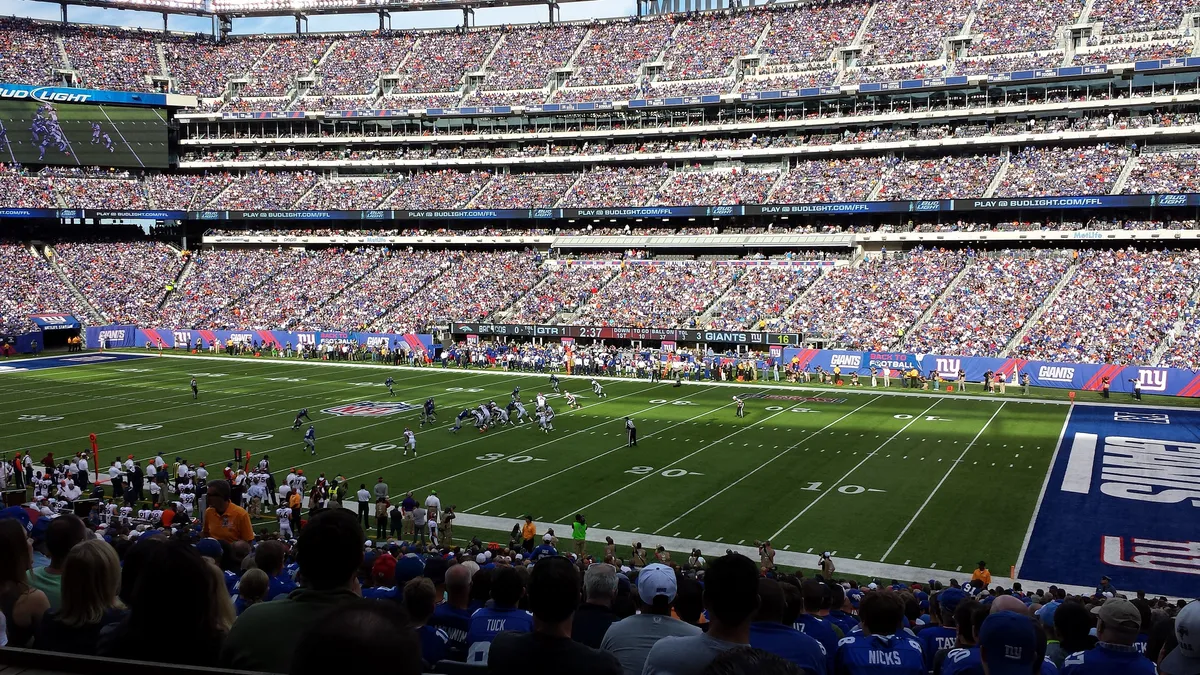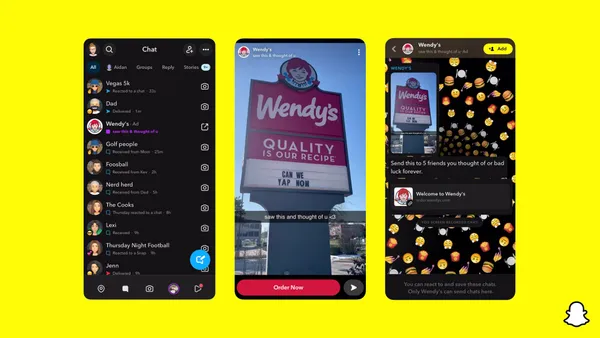Dive Brief:
- The North American sports media market is set to grow at a compound annual rate of 3% through 2021 across segments of media rights, gate revenues, sponsorships and merchandise, according to PwC's 2017 Sports Outlook. Revenue overall could rise from $69.3 billion this year to $78.5 billion in 2021.
- Media rights are expected to grow the fastest of the four segments, growing an estimated 4% each year to hit $22.7 billion by 2021. The year 2018 will likely be the first where sports media rights revenue outpaces gate revenues, with broadcast and digital spend adding up to more than $20 billion.
- The most notable sports rights package looming is the NFL Thursday Night Football block, which is set to expire before the end of the year, per Ad Age.
Dive Insight:
PwC's latest report only reinforces the strong premium that marketers put on sports media, and how professional leagues will continue to ramp up the prices to their content rights as that demand remains healthy and the viewing landscape continues to shift.
Sporting events are cherished by cable and broadcast networks as one of the last bastions for destination viewing, but at the same time, TV ratings have been steadily dropping as more consumers continue to cut the cord in favor of digital alternatives. This has realigned where some leagues think about airing their games.
Amazon, for example, paid $50 million — plus a reported extra $30 million in free marketing and promotions — to the NFL this year for the rights to stream 10 Thursday Night Football games on its Prime Video service. Verizon this week also closed out a five-year deal with the professional football organization reportedly worth up to $2.5 billion that allows it to stream some games on mobile phones and other platforms and devices, including tablets, according to ESPN.
While these digital streaming rights are becoming a more important part of negotiations, PwC suggests that — at least in the near term — broadcast rights are going to take precedence over digital rights to avoid further diluting the rights fees. For now, TV networks are willing to pony up much more money to air live sports, but digital players have shown that they're eager to get into the game to potentially drive user growth and ad revenues, connect with younger fans and boost engagement beyond the traditional linear viewing experience by combining viewing, gaming and real-time commentary on a single, streamlined platform.
Facebook, for example, is reportedly searching out an executive who would have budget of "a few billion dollars" to negotiate streaming deals in order to position the social network as a more aggressive player in this new wave of growth for digital sports viewing.














